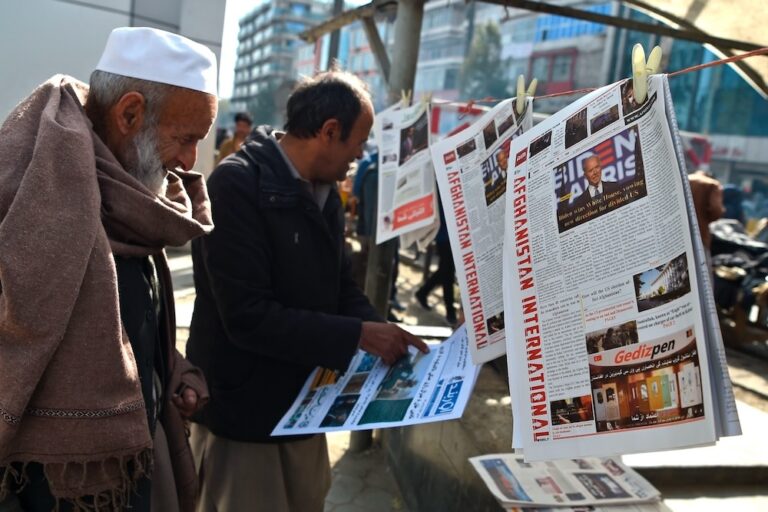The proposed amendments were recalled by Afghan president Ashraf Ghani after an outcry from media outlets. Some of the amendments would have required journalists to disclose their sources and allow government censorship of news reports.
This statement was originally published on afjc.af on 18 July 2020.
The Afghanistan Journalists Center (AFJC) welcomes the move by the Afghan government in dropping a proposed initiative on an amendment to the media law introduced to the parliament in June that would have had a very negative effect on media freedom in the country.
The amendments were sent to parliament for ratification but recalled by the Afghan president Ashraf Ghani for further review after an outcry from media outlets. Afghan media organizations in an open letter had asked the government to drop the initiative and the procedure that was followed.
Among the proposed amendments was a measure that would require journalists to reveal their sources to government bodies, including the security services, impacting on the rights of media outlets and journalists, reducing the independence of the national radio and television (RTA), allowing government censorship before and after publication and increasing the authority granted to the government’s monitoring organizations. In addition, the amendments would have enabled the revocation of licenses for media outlets and media development organizations in the absence of transparency about financial resources.
Following the outcry by media support organizations and media outlets, the government set up a 12-member technical group (with six members from the media community and six members from government institutions). The group was tasked with deciding on the fate of the initiative, which included voting to drop the amendment, or reviewing the proposed draft and following the procedure. On July 15, after several meetings at the ministry of culture and information, the joint technical group voted to drop the amendment.
“We welcome the technical committee’s decision to vote against the amendment and the government’s commitment that the initiative will not go ahead,” AFJC director Ahmad Quraishi said. “At a time when the government is preparing for the peace talks with the hardline Taliban group, any amendment to the media law would have had serious consequences for media freedom in Afghanistan, adding to the growing insecurity and attacks that affect media outlets and journalists in the country”
The current mass media law was enacted in 2006 and has 54 articles. The proposed amendments were in contravention of articles 7, 34, 120 and 122 of Afghanistan’s Constitution.
Article 34 of the Constitution says, “Freedom of expression shall be inviolable. Every Afghan shall have the right to express thoughts through speech, writing, illustrations as well as other means in accordance with provisions of this constitution.” It also stipulates that “every Afghan shall have the right, according to provisions of law, to print and publish on subjects without prior submission to state authorities. Directives related to the press, radio and television as well as publications and other mass media shall be regulated by law.”



